Northeast Zone Junior Olympics Water Polo Report: Greenwich Remains Top of the Class
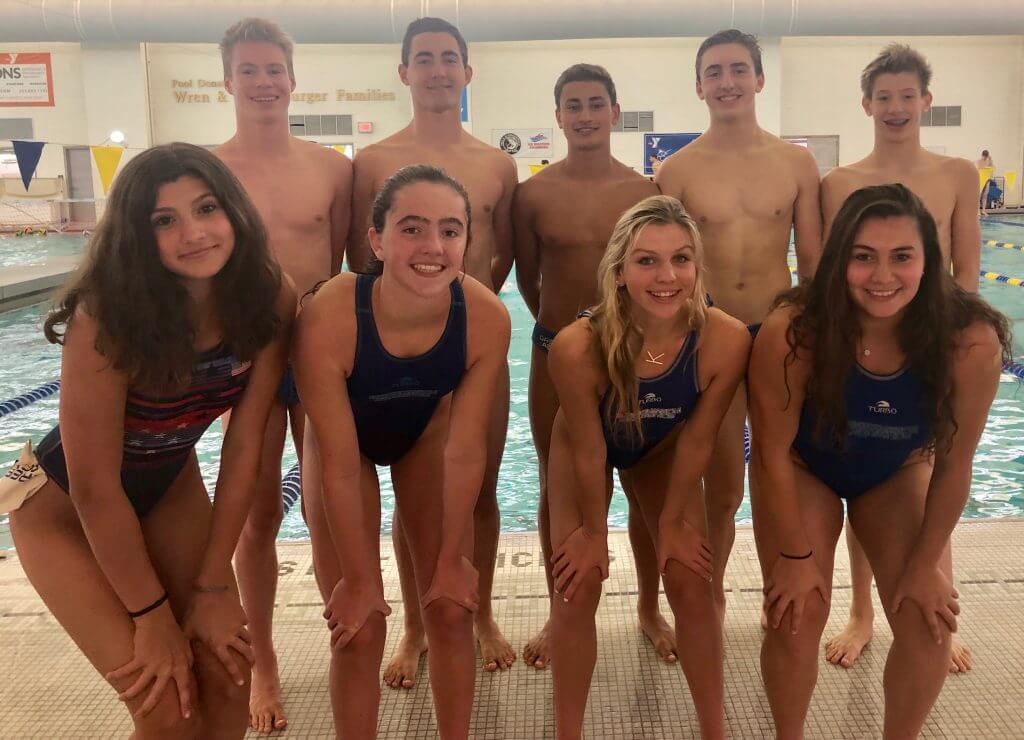
Editor’s Note: Qualifications for the 2019 USA Water Polo National Junior Olympics are underway. Over the next month hundreds of girls and boys teams in 11 zones all over the U.S. will look to qualify for two sessions of tournament play in Orange County California: Session 1 (12U, 14U, 16U, 18U Boys) from July 20 – 23 and Session 2 (12U, 14U, 16U, 18U Girls) from July 25 – July 28.
Swimming World was recently at the Northeast Zone (NEZ) Qualifications on June 1, 2 at Chelsea Piers in Stamford, Connecticut, where Greenwich Aquatics captured the top spots in all the contested categories—10U (Coed) and girls and boys in 12U, 14U, 16U and 18U. Your correspondent is involved with the Brooklyn Hustle 14U boys team.
As age group water polo tournaments go, the 2019 USA Water Polo Northeast Zone Qualifications was remarkably hum-drum. One team captured top place in every bracket, and the closest anyone came to upsetting them was in a 14U boys match that wasn’t close after the first period.
Welcome to Greenwich Aquatics‘ utter dominance of the Northeast. This is not a new story; in fact, it’s a decade in the making—and the disparity between Greenwich and its regional rivals, in particular the Chelsea Piers polo program that played host to JO qualifications last weekend—has only appeared to expand.
But challengers—established and not—exist, concentrated in the East’s Mid-Atlantic region. The once-mighty Naval Academy Aquatics Club, now run by Tom Popp, a former Naval Academy standout, is rebuilding. Potomac Water Polo Club, an upstart program founded last summer by Jonah Dowd, is concentrated on 16U and 18U athletes but looking to grow.
Then, there’s the biggest threat to Greenwich dominance: Capital Water Polo. A Washington D.C. polo club, overseen by Miras Jelic, Capital briefly put a scare into the folks from Connecticut until Greenwich asserted order…for now.
A region in flux—literally
In a market with little supply, it’s all about demand. And Ulmis Iordache, a veteran swim and polo coach who hails from Romania, knows this as well as anyone. Now in his eleventh year with Greenwich Aquatics, Iordache has achieved impressive results, backed by the philanthropic efforts of Bill Smith, a USA Water Polo trustee, Kim Tierney-Wang, who may be the single most influential age group administrator on the East Coast, and a roster of experienced and effective coaches.
That, plus a sales pitch which proves irresistible to parents eager for their children advance in a sport dominated by West Coast athletes and clubs.
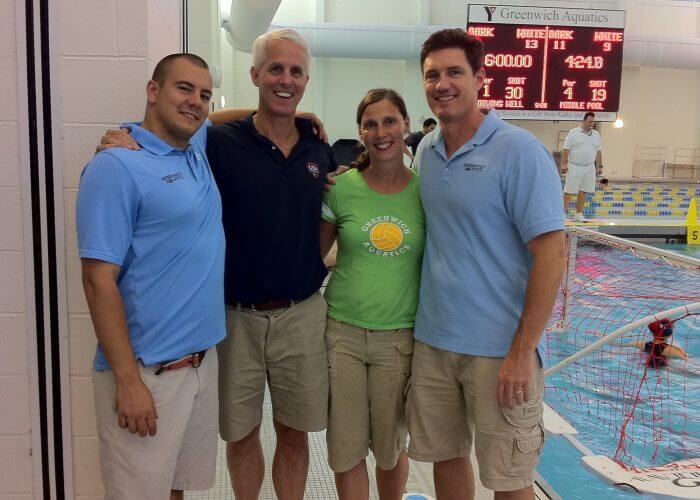
Ulmis Iordache, Bill Smith, Kim Tierney-Wang, Alex Rousseu. Photo Courtesy: Greenwich Aquatics
Iordache has developed some of the East’s top age group players, most notably Thomas Dunstan, a lefty attacker who made the U.S. men’s squad for the Rio Olympics in 2016 and started at USC during his two years in Los Angeles. Kaila Carroll and Kayla Yelensky—regularly picked to various national teams—were selected for the 2019 USA Youth National Team. But Greenwich has also proven adept at attracting players from other clubs in the region. Given a relative paucity of talented polo players, this at time has been controversial.
Last month, two highly regarded players from clubs in New York and Connecticut transferred to Iordache’s program. The timing was detrimental to 14U teams from those programs, in one case eliminating the opportunity for other players to participate in the JO qualifier. Like clockwork multiple times a week, players from Brooklyn and Manhattan make their way to Greenwich. The travel may not be easy, but it certainly is worth the trip; the club recently placed nine athletes—including Carroll and Yelensky—on Olympic Development Program teams from Development to Cadet to Youth.
It’s perhaps convenient to blame Greenwich for their success; not only is this entirely unfounded, it’s been long established practice among California parents that their children will move to the coach or club that offers the best pathway to collegiate success. As evidenced by their performance at JO qualifications, Greenwich teams are by far the region’s best—and are making their way up the national ranks. Last year, a 12U boys squad finished third in the JOs platinum bracket, the best ever for a Greenwich squad. Those boys are all moving up, and may perhaps be better this year—albeit against much tougher California competition.
Contenders lying in the weeds?
Potomac, based in the Washington D.C. area, is a brand-new club partly formed as the result of a parental split with Capital Water Polo. Dowd, who played NCAA varsity polo for George Washington from 2012 – 2015, was a 16U coach with Capital until a desire for change resulted in a number of 16U and 18U athletes—along with some critical younger players—leaving Jelic’s club.
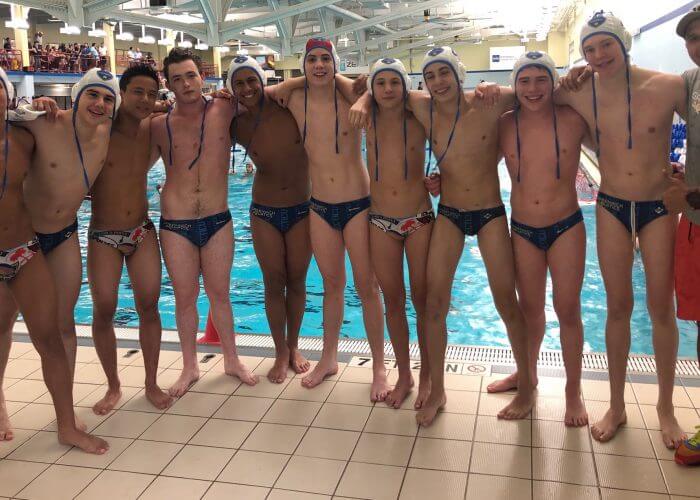
Greenwich 14U boys with coach Gabriel Maldonado. Photo Courtesy: Greenwich Aquatics
Ironically, one of Dowd’s aspirations is to create a club like that which exists in his hometown of Newport Beach, one of the most fertile regions of Southern California polo. Huntington Beach—Newport Beach’s neighbor up the Pacific coast—went through a substantial split more than a decade ago, when players from the local club decamped to Vanguard Aquatics, effecting a profound change in the California polo landscape. Since its founding in 2006, Vanguard has evolved into the preeminent boys’ club in the country, winning the 2018 USA Water Polo Men’s Chairman’s Cup as the country’s best boys’ club.
[On The Record with Sasa Branisavljevic of Vanguard Aquatics]
The club’s 16U and 18U boys teams qualified for the 2018 JOs, but Potomac will need help if their teams are to go in 2019. Their 18U squad finished seventh on Sunday; the club’s 16U entry—in the most competitive bracket at the NEZ JOs, with 10 teams competing for six spots—finished eighth. Both finishes don’t preclude Potomac from invitational spots in the national competition, to be held in and around Irvine, California. Many clubs petition USA Water Polo after all 11 zone qualification are completed for spots in one of the boys’ three levels—Championship, Classic and Invitational—and for opportunities to play in two girls’ levels of competition. The prospects are good for a Potomac return: given the large number of pools available in Southern California, more teams then ever will make the cut.
One 16U team that did qualify on Sunday was Capital; this was a source of satisfaction for Jelic, who has expressed displeasure at the Potomac defections that cost his club some of it’s most experienced players.
Are there enough talented players in the East?
Jelic speculated that there are not enough polo prospects in the D.C. region. But the success of a Capital 16U squad, cobbled together after defections to Potomac, suggests that there are—especially athletes ready to step into what is an extremely competitive bracket. By the time they are age-eligible, 16U players often have had five, six or even seven years of playing experience. Finding these types of players in a thin polo market is difficult; Jelic was either lucky or—more likely—wise to capitalize on a strong basis of swim ability in a region that has produced Michael Phelps and Katie Ledecky.
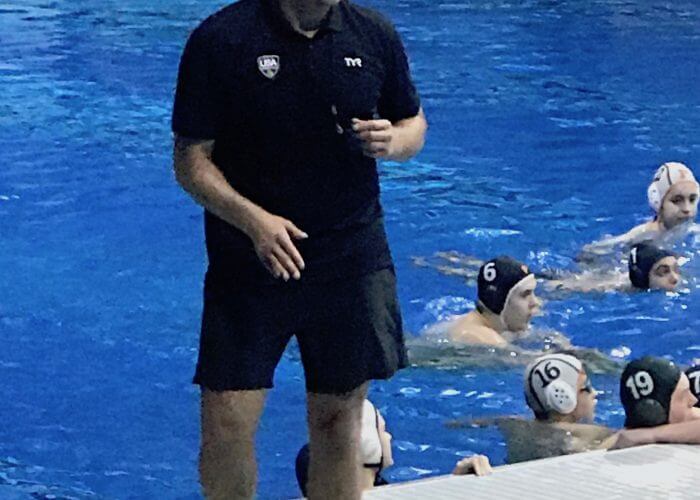
Miras Jelic. Photo Courtesy: USAWP
That, and he’s simply a very good coach, which may be the most important factor in the club’s growing success. Not only has he been involved with Capital Water Polo for the past three years, the Serbian-born Jelic has also been a regional coach with USA Water Polo’s ODP. This year, the Capitals had two teams qualify for JOs—a step back from last year—but their 14U boys will be going to the Championship bracket on the strength of a second-place finish at the qualifier.
[Capital Water Polo’s Miras Jelic: The East is Showing Its Potential]
This team had previously stunned Greenwich in local tournament play, beating what was admittedly a sub-par squad in a Tri-State League title match last May. This created expectations for a potential JO qualifications finals match-up, but also some friction. The JO seeding, done by Tierney-Wang—the Northeast Zone Chair—was initially tilted toward two Greenwich entries. Popp and Jelic questioned this, and the bracket was wisely re-seeded, with the top Greenwich squad first and Capital second.
Jelic knew the Capital prospects to place first were not strong; not only had he lost his starting 14U goalie to the Potomac diaspora, as the Northeast Zone 14U ODP coach, he knew exactly which Greenwich starters were missing in May, including Ryan Ohl, named last month to the 2019 USA Development National Team. Ohl was unstoppable Sunday against Capital, as his deft sidearm delivery handcuffed Jelic’s inexperienced goalie. Ohl and his teammates drowned a strong Capital start, giving Greenwich the region’s top 14U boys spot.
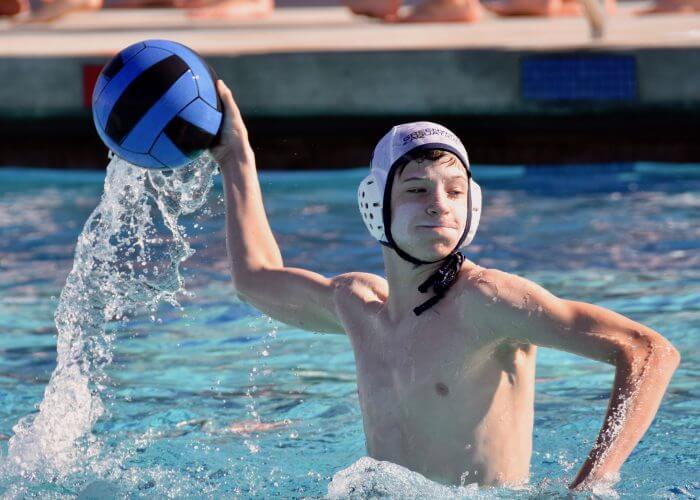
Greenwich’s Ryan Ohl. Photo Courtesy: Greenwich Aquatics
Also elevating play in the region is a revitalized Navy Club program. When Luis Nicolao, a 1992 Navy graduate, returned to Annapolis to take over a Middie men’s program that had fallen on hard times, first hire was Popp, a one-time teammate also connected to the golden years of Navy polo.
Besides his duties as Nicolao’s top assistant, Popp is charged with overseeing the development of Navy age group players. This will take time; last year the club sent four teams to California, including a 16U girls team that performed well. Navy will send 14U, 16U and 18U boys this year but no girls.
[On The Record with Tom Popp of Navy Water Polo]
The club’s current performance is a far cry from arguably the greatest season in Eastern history, when a team headlined by Brad Schumacher and Wolf Wigo stormed into Long Beach and achieved something never repeated: gold in the 1990 JOs 17U boys bracket—the first and only time an Eastern team has captured a JO title.
What does it all mean?
Thanks to Tierney-Wang, Smith and Iordache, all conversations about Eastern age group polo begin with Greenwich. That will continue for the foreseeable future; the depth of coaching and phenomenal success that they have collectively achieved will draw new athletes from all over the region—and will likely ensure the continued movement of experienced players from less successful clubs to the sport’s regional center.
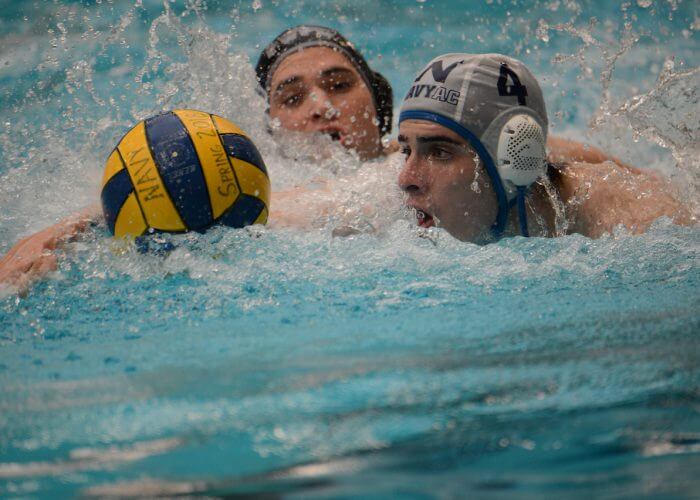
Photo Courtesy: Gerry Lindner
Concurrently, a strong Navy program, an ambitious Potomac club and the strong coaching base at Capital will establish Washington metropolitan area as a rival pole for Eastern age group polo. That Jelic is developing accomplished athletes both for his club and for ODP is a tremendous boon for the sport, and the rivalry with Potomac—perhaps somewhat acrimonious at the moment—is a great spur for both clubs to improve.
This is not to underestimate how significant a strong Navy club and varsity program are to region’s continued development. Making the metro area’s finest aquatics facility open to age group polo—and having access to established coaches like Nicolao, Popp and Mike Mulvey, another former USNA standout who was recently hired—suggests a balancing out of the two ends of the zone.
For now, all polo roads in the East run through Greenwich. But increased competition, especially the upstart status of the Mid-Atlantic squads, is good for the zone and the sport’s future.




Ужасный ракурс